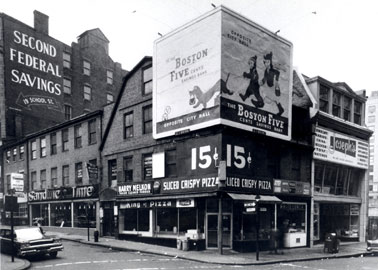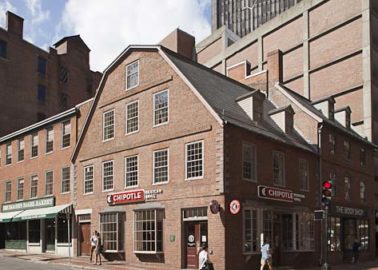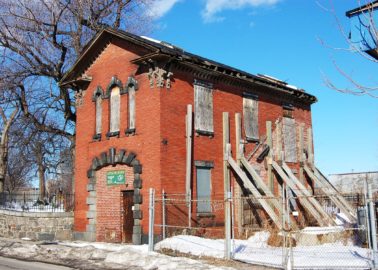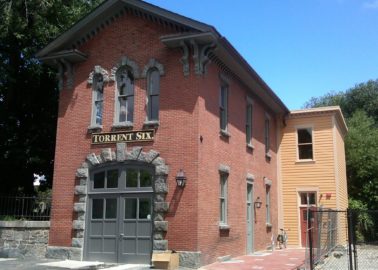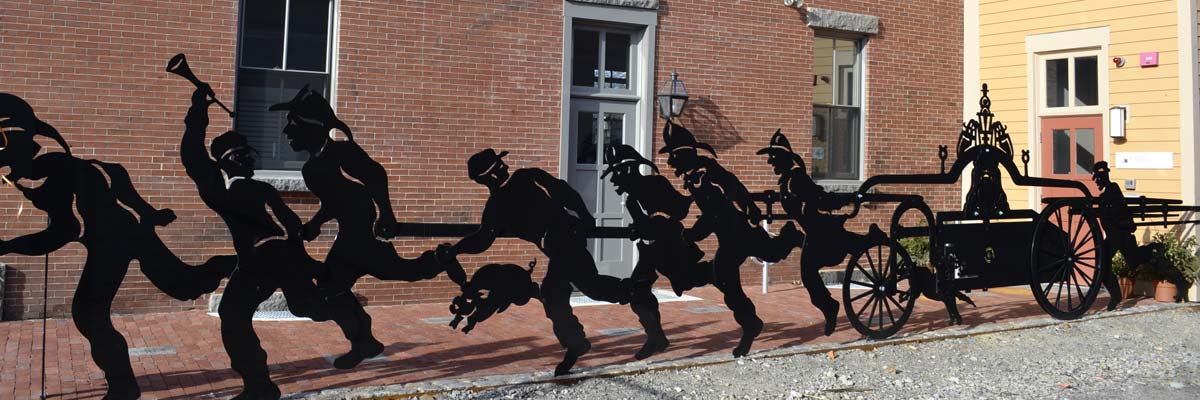
Historic Boston Inc. redevelops at-risk historic buildings in order to help Boston’s neighborhoods thrive.
With the ability to devote its own technical and financial resources to projects, attract capital from conventional lenders and philanthropic sources, and utilize state and federal tax credit programs, HBI continues to be a patient non-profit investor in the redevelopment and re-use of important historic buildings that the market has disregarded. Founded in 1960 to save Downtown Boston’s Old Corner Bookstore building, HBI has restored and repositioned dozens of historic buildings throughout Boston’s neighborhoods.
History
Historic Boston Incorporated was started in 1960 as a rescue mission. Downtown Boston’s oldest commercial building, the Old Corner Bookstore, was slated to become a parking garage.
The building, constructed in 1718 by Dr. Thomas Crease, was his home and apothecary shop. It later housed a number of booksellers and publishers, the most famous of which was Ticknor and Fields, publishers of many well-known American titles including Thoreau’s Walden, Hawthorne’s The Scarlet Letter, Beecher Stowe’s Uncle Tom’s Cabin, and the Atlantic Monthly. Many of the great writers of the American Renaissance — Nathaniel Hawthorne, Harriet Beecher Stowe, Henry Wadsworth Longfellow, Ralph Waldo Emerson, Oliver Wendell Holmes and many others — were first published here, and the first American editions of Charles Dickens works were issued from this building.
In 1960, a group of Bostonians, concerned about the impending loss of an important piece of the city’s architecture and heritage, formed Historic Boston Incorporated (HBI) as a non-profit organization and pooled their resources and connections to acquire and restore the building for continued use as retail shops and commercial offices.
A New Model for Preservation
HBI’s founders demonstrated that the preservation of historic buildings can be a driving force in economic revitalization. The Old Corner Bookstore became an official site on Boston’s Freedom Trail and today is beloved for its architecture and history, and for its prime retail location at the busy corner of Washington and School Streets.
The Old Corner Bookstore’s success inspired HBI to become a non-profit developer in 1979 when preservation leaders recognized direct action was needed for many historic buildings in Boston’s neighborhoods. HBI’s first projects included Charlestown’s Hurd House and Austin Block, East Boston’s Trinity House, and Roxbury’s Spooner Lambert House, Zackzewrska Medical Building, Alvah Kittredge Park Row Houses, and the Cedar Street Marble Row Houses. HBI also supported more than 52 active religious congregations with preservation of their historic houses of worship through its Steeples Project between 1993 and 2008.
